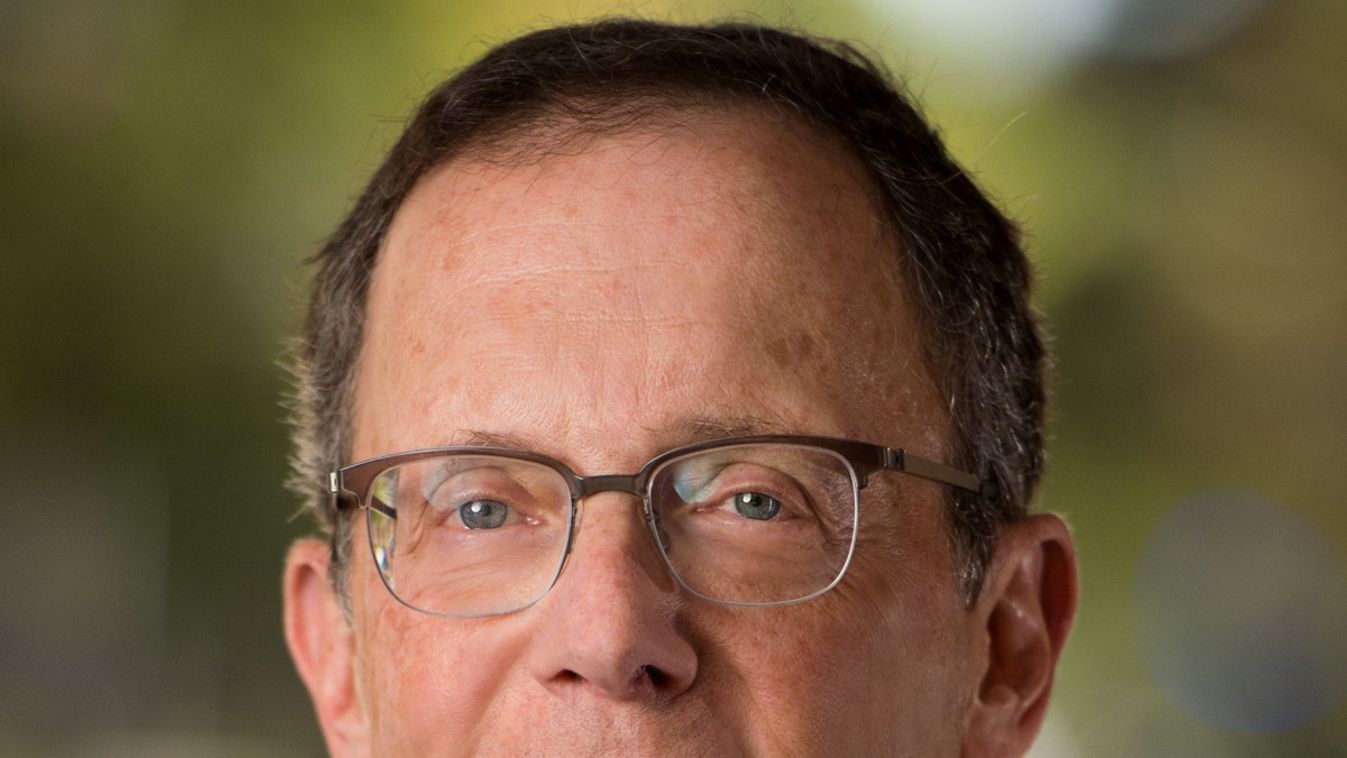Orbán móresre tanította Von der Leyent: megmutatta neki, mire képesek a magyarok (VIDEÓ)

„A szuvereintás jobb üzlet” – jelentette ki a Nézőpont Intézet vezetője.

It is far from clear what solution there might be to the problems raised by the digital platforms. Breaking up the platforms is likely to be temporary because network effects will be likely to cause the markets to tip back to large dominant players – Douglas Melamed, Professor of the Practice of Law at Stanford Law School pointed out in a conversation with Lénárd Sándor, researcher at the National University of Public Service.

The US recently filed several antitrust lawsuits against Google and Facebook because of they are monopolizing certain markets by driving competitors out of business and thus harming competition. These lawsuits are the first large antitrust lawsuits since the Microsoft case more than two decades ago. Can you shed light on how these companies challenge the markets and how the antitrust lawsuits are challenging them?

Google and Facebook operate digital platforms in their core businesses, search and social network. These platforms benefit enormously from network effects, which can be seen as a kind of scale economy in which the value of the service increases as the number of users increases. Search results on Google and advertising placement on both Google and Facebook are driven largely by algorithms based on data about users and user categories that are generated by user participation on the platforms. These algorithms become more accurate, and thus more valuable to users and advertisers, as the number of users and the amount of user participation on the platforms increase. Facebook’s users, and thus Facebook, also benefits from having a large number of users who are able to communicate with one another through the platform.
Because of these benefits from large scale, Google and Facebook have a significant advantage over smaller existing rivals and potential new competitors. The advantage is almost surely not insurmountable, and either or both could over time be displaced by new technologies or competitors that develop superior services.
The antitrust lawsuits allege that Google and Facebook, in different and multiple ways, have engaged in anticompetitive conduct in order to reduce the likelihood of increased competition in the future.
To oversimplify, anticompetitive conduct is conduct that tends to harm competitors or raise barriers to competition but has no substantial efficiency benefit such as reducing costs, improving products or services, or reducing above-cost prices. Google is alleged to have entered into agreements with possible partners of competitors that make it harder for the competitors to succeed in search and in advertising. Facebook is alleged to have acquired potential competitors in order to eliminate the threat that they might succeed in providing social network alternatives. Facebook is also alleged to have excluded from its platform apps that facilitate competing social networks.
At least in the US, antitrust law does not prohibit any firm, including Google and Facebook, from benefitting from scale economies or other lawfully obtained advantages they might have. Nor does US antitrust law prohibit being a monopoly, even for a long time. US antitrust law is violated only by anticompetitive conduct that tends to create or perpetuate market power. The antitrust cases against Google and Facebook are likely to depend largely on whether the government can prove that the conduct of which they complain really was anticompetitive, rather than a form of lawful competition on the merits.
Just a little more than a century ago, under the Presidencies of Theodore Roosevelt and William Howard Taft, the first antitrust prosecutions were filed against large trusts in the steel, oil and other industries. These lawsuits were trying to put an end to the “Gilded Age” of the late 19th century that was marked by the rise of corporate giants who stifled competition. What, in your view, are the parallels between the “Gilded Age” and today’s rise of Big Tech such as Amazon, Apple, Google, Facebook and Microsoft? How should antitrust policy react to this phenomenon and which school of thoughts would you prefer?
I do think we are in something of a Gilded Age today. Huge, dominant companies; tremendous innovation and wealth creation; and great inequality in wealth, income, and political power. Not surprisingly, there appears to be increasing populist sentiments in this country and elsewhere. These sentiments are exacerbated by the digital platforms, especially Google and Facebook, whose businesses implicate issues of privacy, speech, and political and social community – which are especially provocative subjects.
From an antitrust perspective, however, there appear to be some important differences. The Sherman Act was enacted in 1890, and the Clayton Act not until 1914. The dominant companies of the Gilded Age achieved their positions largely before those statutes were enacted and enforced, and the conduct that formed the basis of the antitrust claims against them was more brazen and more clearly unlawful than much of the conduct of the digital platforms about which critics complain.
In my view, antitrust enforcement in the US has been too lax.
US antitrust law has been excessively focused on avoiding the risks of false negatives, even at the risk of false positives.
Some legal doctrines need to be revised. But the revisions, and application of the antitrust laws to the big technology firms, should be based on economically sound and factually supported theories.
Many people, on both the left and the right, would like to use antitrust law to reign in or break up those firms, even without proof that they have engaged in anticompetitive conduct. They would like the antitrust laws, which are now focused solely on economic welfare, to be used also to further other objectives like equality. I believe that would be very unwise. Adding other objectives will matter only when it would lead to different outcomes, outcomes that reduce economic welfare. Moreover, having multiple conflicting objectives will tend to make antitrust decisions arbitrary and unpredictable and more susceptible to regulatory capture than a law whose enforcement and judicial decisions can be assessed by an unambiguous metric. In addition, US antitrust law applies to almost all commercial conduct and is enforced in a very decentralized manner. Adding multiple and conflicting objectives would undermine the ability of antitrust law to serve as a predictable guide to business conduct. And because antitrust law depends on case-by-case enforcement, it is not likely to become an effective means of addressing systemic problems, like economic and political inequality.
Are the antitrust challenges around large tech companies the same or are they different in Europe than in the US?
The specific cases are different. In Europe, for example, Google has been charged with unlawful self-preferencing of Google Shopping in its general search results and with imposing unlawful restrictions on licensees of Android, and Facebook has been charged in Germany with unlawfully changing its privacy policies. The cases brought in the US by the Justice Department and the FTC do not involve that particular conduct.
More generally, the antitrust challenges are likely to differ around the world because of differences among competition laws.
US law is focused solely on economic welfare and prohibits only anticompetitive conduct. EU law also prohibits abusing a dominant position by excessive prices or other onerous terms of trade, and laws in other countries have additional objectives like promoting the socialist economy in China.
The Digital Revolution allows non-state actors such as large tech companies to become centers of powers in an information society. The famous American Justice, Louis Brandeis warned against the “curse of bigness” as he pointed out, when dominant trusts are not only economically inefficient but their monopoly or concentrated power also poses a menace to the rights of the people as well as to the political system itself. In light of this notable observation, how, in your view, Big Tech might endanger – beyond the competition and the markets – the fundamental rules and values of political communities? What could be the constitutional aspects of these ongoing antitrust cases?
Justice Brandeis made a number of powerful statements of the type to which you refer, but his actions as a judge were more measured. The issues raised by Big Tech cannot prudently be solved by slogans like the “curse of bigness.”
The issues you raise fall, I think, into two basic categories. The first is about inequality in general. The big technology firms have created great wealth for their founders, investors and managers; and that has exacerbated other, more fundamental forces leading to inequality of wealth, income and political power. In these respects, however, the tech firms are not unique. Similar observations can be made about big financial firms and even small hedge funds, big pharmaceutical firms, merchandise firms like Wal-Mart, and so on. The US needs to take a hard look at how its laws – tax laws, corporate law, labor law, and so on -- contribute to rising inequality and might prudently be revised to ameliorate it.
The second concerns what you have called the fundamental rules and values of political communities.
The technology platforms are a principal means of disseminating information in our society, and the platforms are often and unfortunately used to disseminate misinformation in order to distort political processes.
The platforms also, by their very nature, tend to distract people from physically proximate associations – clubs, teams, religious congregations, and the like – and to direct them to virtual associations based around shared ideas. Although the data are inconclusive, there is reason to be concerned that the platforms might in these ways distort political decision making, exacerbate political polarization, undermine mediating associations that stabilize societies, and more generally increase the likelihood and success of undemocratic, authoritarian political movements.
It is far from clear what solution there might be to these problems.
Breaking up the platforms is likely to be temporary because network effects will be likely to cause the markets to tip back to large dominant players.
Regulating the platforms might be helpful; but regulation is constrained in the US by the First Amendment of the Constitution, which as a general matter prohibits the government from restricting the speech of private parties, including corporations. Some have proposed mechanisms to give users more control over the content and advertising directed to them. That might ameliorate the disinformation problem; but it is unlikely to ameliorate, and might even exacerbate, the problem of replacing affective associations with ideological associations.
These are not antitrust problems. To the extent that antitrust enforcement diminishes the power or reach of individual platforms, it might have an incidental effect on these matters. But sound antitrust law should remain focused on the economic issues on which US antitrust is presently focused. If it does that, it is not likely to be constrained by Constitutional provisions like the First Amendment.